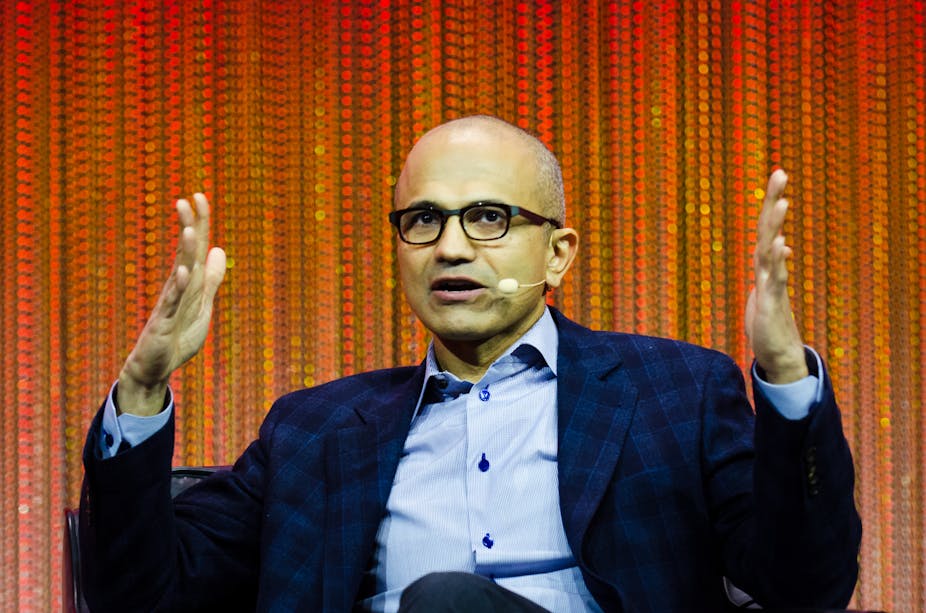Faced with uncertain times, Microsoft has named Satya Nadella as its new CEO. His appointment follows months of speculation over who would replace longstanding leader Steve Ballmer, who retired last year. What is perhaps most striking about the choice to promote Nadella is that Microsoft has decided to opt for a CEO with a background in engineering, as opposed to a traditional management background.
As Nadella settles in, all eyes will be on him to see if an individual with a more technically-oriented background will do a better job of calming internal and shareholder nerves than his predecessor. Microsoft is by no means a struggling business, but it is in a period of market transition and uncertainty is a natural part of any such process. The tech giant is seeking to shift away from its almost total reliance on licensing as an income towards selling more devices.
Nadella is certainly no beginner when it comes to business. He has an MBA and has worked at Microsoft since 1992. He was promoted last year to an executive vice-president position, taking charge of Microsoft’s cloud division. But his roots are in software and engineering – both educationally and professionally.
This casts Nadella in stark contrast to Ballmer, who had a more traditional management background. From running his college football team, Ballmer moved onto a role as an assistant product manager at Procter and Gamble. He later dropped out of the prestigious Stanford graduate school of business to become the 30th employee at Microsoft, following what one would consider a straightforward management pathway across and up the organisation. What Ballmer lacked was status as a direct expert in the science of engineering and development – Microsoft’s core competency. Nadella has that in spades.
Research tells us that, in times of uncertainty, we are more satisfied with leaders who are viewed as holding expert status. Psychologically, we feel more secure when we perceive that the person giving us advice is an expert in what he or she is giving advice on. These proclivities are more pronounced during times of uncertainty, when we naturally search out even more reassurance. Expert status translates into power and influence – two tools that will allow Nadella to redirect Microsoft as its consumer base changes.
Microsoft is one of a number of tech firms that have chosen to place individuals with a strong technical background into the top office. Most of Microsoft’s main rivals are currently run by engineers. Apple has Tim Cook and Yahoo recently made a very high-profile appointment in the form of Marissa Mayer, a computer scientist who spent years at Google before taking charge at Yahoo in the wake of a scandal over her predecessor’s computer science credentials.
IBM is led by engineer Ginni Rometty, while Twitter’s Dick Costolo has a background in computer science, despite forays into improvisational comedy.
These appointments highlight a trend away from leaders with a background in business or management. It may well be that it is the uncertainty within a transitioning industry that is, in part, driving this trend. Social psychology would suggest this to be the case. As these organisations and their customers change, there is a natural response on the part of both internal and external shareholders to seek out technical experts to address these changes in what is, after all, a technical industry.
It might be a step too far to suggest that we are witnessing the beginnings of the era of the expert leader and the desecration of the generalist CEO but the tech industry is ripe at the moment for individuals like Nadella to draw upon their technical expertise to gain power and rise to higher ranks. Engineers rejoice, the time you spent in the lab at college may just be giving you the competitive advantage that you had been hoping for in business.

